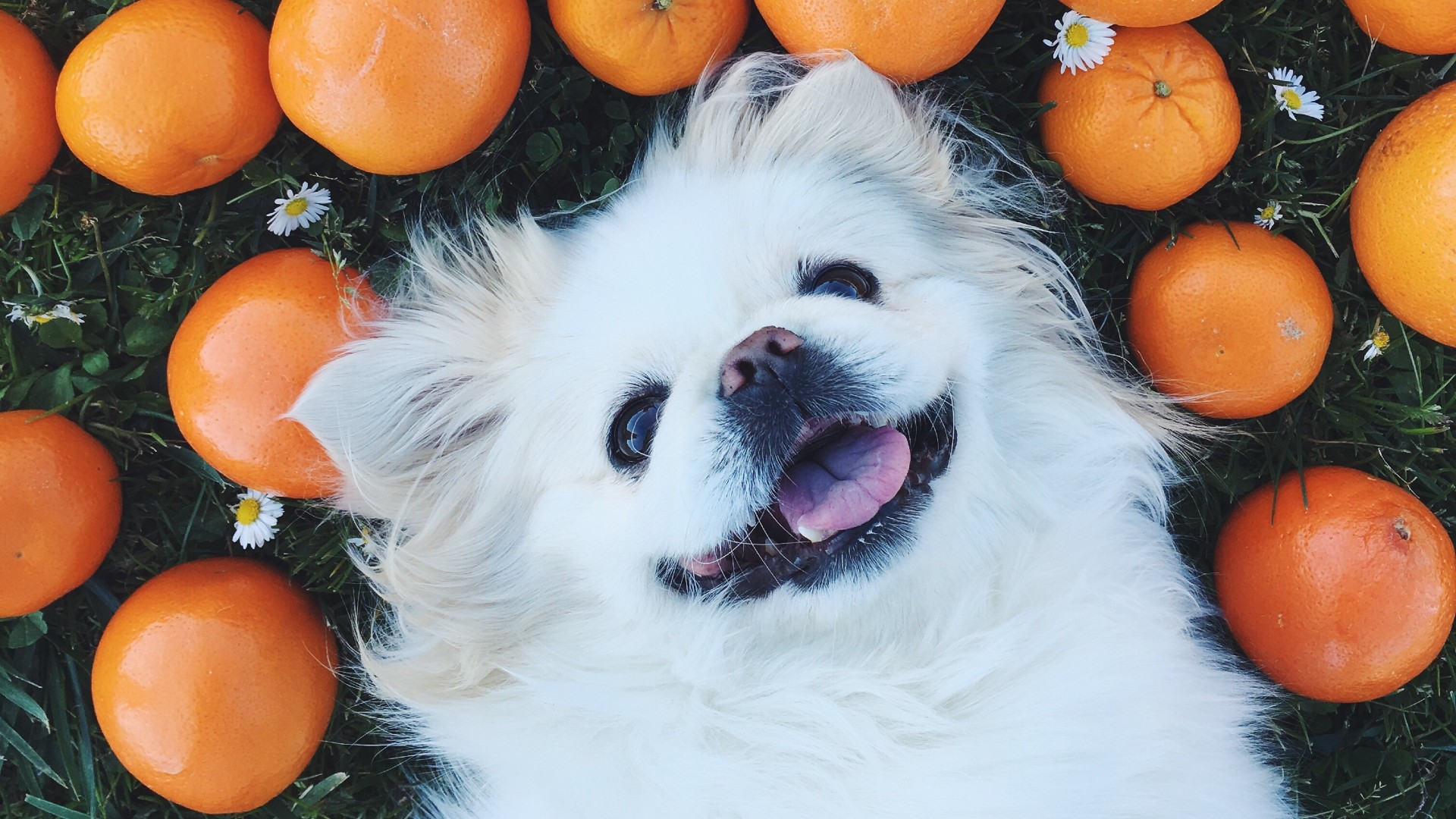Can dogs eat oranges? We give you the juice
Can dogs eat oranges? Let’s take a citrus-scented sniff around to see whether it’s a no or a go for your hound

Get the best advice, tips and top tech for your beloved Pets
You are now subscribed
Your newsletter sign-up was successful
There are few fruits as fragrant as the sweet-smelling orange but while humans consume them by the bucket loads can dogs eat oranges?
If you’ve been wondering whether oranges are among the human foods dogs can eat then you’ll be pleased to know that the answer is a big fat juicy yes! While not all fruits and vegetables are suitable for dogs, small amounts of orange flesh can be a lovely snack for your pup and a healthy addition to their diet.
Packed full of vitamin C, potassium, and fiber, oranges can give your furkid’s immune system a boost and help the digestive system to function smoothly. Let’s dip into the fruit bowl and peel back the layers of the humble orange to get the lowdown on whether this sweet treat is good for your furkid and how much of the orange stuff is too much.
- Five amazing superfoods you should feed your dog
- Can dogs eat bananas? Find out if this fruit's for them
How much of an orange can dogs eat?
Oranges aren’t toxic for dogs so you don’t have to worry about letting them have a taste of this juicy fruit. But as with everything, moderation is key.
Fruit is classed as a treat food and shouldn’t make up more than 10% of your dog’s daily diet - one segment of orange flesh for a small dog and up to three for a large dog is ample, provided they have no underlying health conditions.
Some dogs aren’t keen on the tart taste and strong smell of oranges, so pop a segment down in front of them and let them have a sniff before you incorporate orange into any doggy recipes. Have some of the best dog treats in reserve should they not be keen.
Is the vitamin C in oranges good for dogs?

While some pet parents like to add oranges to their dog’s diet due to their high vitamin C content, healthy dogs are able to produce their own amounts of this vitamin so it’s not a must for them from a nutritional point of view - unless they’re highly active.
Get the best advice, tips and top tech for your beloved Pets
Although most vets and nutritionists have long considered added vitamin C to be unnecessary for dogs, there is a growing consensus that it may be beneficial for exceptionally active dogs.
“In some dogs, extreme exercise or stress can overwhelm the liver’s capacity to make vitamin C,” explains Dr. Christine Keyserling, a New York-based vet. “In these cases, it may be beneficial to provide additional vitamin C supplementation. However, for most pets, it’s not required.”
Can eating oranges be dangerous for my dog?
For most dogs, a daily dose of orange is fine if they enjoy it but it’s a no-no for dogs with certain health conditions.
At around 9% sugar, oranges aren’t suitable for overweight dogs or those that suffer from diabetes. While the sugar in oranges is natural, it can still cause fluctuations in the blood sugar levels of diabetic dogs and the excess calories can cause already portly pups to pile on more pounds.
Oranges are also high in acid and while the fiber content can help with the formation of healthy stools in many dogs, for those with sensitive digestive systems the extra acid can lead to gastrointestinal upsets and have the reverse effect, causing diarrhea.
It’s important if you’re feeding your dog oranges that you only give them the flesh and never the peel or white pith. Both of these parts can contain toxic compounds and the peel can cause blockages in the bowel or cause your canine companion to choke. The oils in the peel also upset the digestive system, resulting in vomiting, diarrhea, and dehydration.
DIY orange dog treat
If you want to give your pup a break from store-bought dog treats, these mouth-watering recipes are sure to please.
Homemade dog treats are a great way to show your hound some love by incorporating some of their favorite flavors into a special snack.
Here’s one of our favorite orange dog treat recipes that’s quick and easy to make at home, courtesy of The Honest Kitchen...
Orange Pro Bloom Dog Biscuits

Ingredients
- 1 orange, juiced
- 1 tablespoon goats milk
- 2 cups spelt flour
- ½ cup ground pumpkin seeds
- 1 cup oat flour
- 1 egg
- ¼ cup honey
- ½ teaspoon vanilla extract
Instructions
- Preheat oven to 350°F. Line cookie sheets with parchment paper.
- In a blender or food processor, grind sunflower seeds to a meal or powder consistency.
- Combine flours, ground sunflower seeds and goat's milk in a large bowl.
- Add egg, vanilla extract and honey to dry ingredients and mix well.
- Slice orange in half. Squeeze juice into bowl – don’t worry if pulp gets into the dough.
- Knead dough into ball. Split the dough into four or five smaller balls. Roll each ball onto a flat countertop covered with parchment paper and roll to ¼ to ½ inch thickness. Cut with cookie cutters and place on cookie sheets.
- Place in oven and bake for 12-15 minutes.
- Remove from oven and let cool on racks for 1 to 2 hours.
- Place in an airtight container or bag and keep in refrigerator or freezer until needed.
Recipe notes
If any orange seeds fall into your mix, remove them from the dough as they can pose a choking hazard for smaller dogs.

Kathryn is a freelance writer who has been a member of the PetsRadar family since it launched in 2020. Highly experienced in her field, she's driven by a desire to provide pet parents with accurate, timely, and informative content that enables them to provide their fur friends with everything they need to thrive.
Kathryn works closely with vets and trainers to ensure all articles offer the most up-to-date information across a range of pet-related fields, from insights into health and behavior issues to tips on products and training.
When she’s not busy crafting the perfect sentence for her features, buying guides and news pieces, she can be found hanging out with her family (which includes one super sassy cat and a kitten), drinking copious amounts of Jasmine tea and reading all the books.
She has written for a range of publications, including Fit&Well, Top Ten Reviews, LiveScience, Goodto, and Product Hunt.
